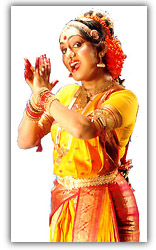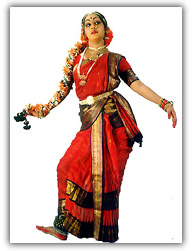|
|
|
|
|
|
|
||
|
Menarikam (Cousin Marriage: Consanguinity)
Menarikam is a marriage, among many tribes/castes of
Andhra Pradesh and other South Indian states, between a maternal uncle
and his niece or between cousins, similar to Islamic, Jewish and
Zoroaustrian traditions. While Islam allows all first cousins to
marry, Telugus distinguish between two kinds of first cousins: cross cousins
and parallel cousins, and allow marriage of cross cousins only. Sons
and daughters of a maternal uncle or a paternal aunt are cross cousins,
for example, his mother's brother's daughter is matrilateral cross cousin
and father's sister's daughter is patrilateral cross cousin.
All other first cousins related through one’s paternal uncle or maternal
aunt are are parallel cousins and considered brothers and sisters. Similar to Telugus, marriages between uncles and nieces are permissible in Jewish law and Jews advocate a specific form of cousin marriage between the children of brothers in certain circumstances. Zoroastrians (Parsees) in India also practice this cousin marrige. The cross cousin marriage, which is common in South Indian nationalities, is prohibited in some of the North Indian (Hindustani) nationalities and tribes/castes. Among Marathi communities (see Nagpur on line) such as Marathas, Kunbis, Malis, Mahars, etc-the marriage of a brother's daughter with a sister's son is common. The other form of cross-cousin marriage, viz.. the marriage of the brother's son to the sister's daughter is practised by some Gonds and other tribes among whom it is considered as doodh lautna (give back the milk). Murias and Bhils of North/Central India also practice cros cousin marriage. Among some tribes/castes of Telugu nationality, and among some Desastha Brahmanas of Mahrashtra, a man is considered to have a preferential right to marry his cousin or his sister's daughter. It is a right of first refusal, but some castes consider it improper for him to refuse. Twice born tribes like Brahmins have gotra (lineage). All persons belonging to the same gotra are descended from the same male ancestor and, hence, same gotra marriage is prohibited. This Brahminical gotra based system of marriage prevents the unions of persons nearly related on the father's side. Among Brahmins and other twice-born tribes/castes rule of sapinda exogamy prohibits marriage between persons related on the woman's side, within three or four or five degrees. In Balenese culture gotra is called dadia. Contrary to Brahmin system in India, the ideal partner in Balinese culture is within the dadia - a patriparallel cousin. The Kurichiyans of Kerala prefer cross-cousin marriage to any other marriage alliance. Patrilateral cross-cousin marriage is observed among the Paraiyars and other castes/tribes of Tamil Nadu. The male cousins in some communities in Nepal have a customary right to demand for the hands of their female cousins. In China, patrilateral parallel cousin marriage is prohibited; other types of first-cousin marriages are allowed. Cousin marriages have been widespread in rural societies. The practice is still popular in much of the Muslim world, including the Indian Continent that is home for approximately half a billion Muslims (half of the total Muslim population of the world) and about 700 million Hindus (including the Dalit- and Hindu-Christians). In the Middle East, over half of all marriages are consanguineous where the most common type of consanguineous marriage is that of patrilateral first-cousins. It is estimated that 20% of marriages worldwide are between relatives who are first cousins. (For more facts on cousin marriages and help visit cousincouples.com.) As a matter of fact, the entire humanity is related, but first cousins are considered closely related, next to siblings. However, research indicates that occasional menarikam may cause little or no harm to the offspring (see below). Telugu culture does not prohibit this menarikam traditon, because it does not destabilize the family structure and is purely based on tribal traditions and practices that serve to keep money and property within families. Nevertheless, a Telugu saying warns that if menarikam occurs several times there is a danger of defective births. Today, 30 states in US prohibit marriage between first cousins, and one state (North Carolina) prohibits marriage between double first cousins (but not single first cousins), while 19 have no laws against first cousin marriage at all. Several states provide for exceptions for older couples, and states generally recognize marriages of first cousins married in a state where such marriages are legal. Although, first cousin marriages are rare in Europe, none of the European states prohibit first cousin marriages. “Forbidden Relatives: The American Myth of Cousin Marriage,” by anthropologist Martin Ottenheimer, addresses the subject of cousin marriage, especially in the context of laws in the USA. Another book, “The Mountain of Names,” by Alex Shoumatoff, also covers this topic. First cousins, who may hold about 1/8 of their genes in common, may be somewhat concerned about the possibility of a harmful recessive gene in their common ancestry, particularly if they know that one exists. In the late 1800's, many states in the U.S. dropped the Biblical prohibitions against marriage between affinal relatives (relatives by marriage) and adopted prohibitions against first cousin marriage instead; they justified the change with developing notions of biology, evolution, and public health. Health reports were wildly exaggerated and accepted. While there is some medical or genetic basis for concern about the marriage of very close cousins, it is not to the degree that would justify the great prejudice against cousin marriage that is held by the average person in the U.S. today. It is essentially because Christian traditions discourage cousin marriage. If you are married through menarikam, watch out for these states in US, which currently prohibit first cousin marriage: AZ, AR, DE, ID, IL, IN, IA, KS, KY, LA, ME, MI, MN, MS, MO, MT, NE, NV, NH, ND, OH, OK, OR, PA, SD, UT, WA, WV, WI, and WY. Researchers from Stanford University and the National Society of Genetic Counselors spent more than two years studying health statistics on the offspring of first-cousin marriages in North America, Africa, Asia and the Middle East. The researchers concluded that children of marriages between cousins inherited recessive genetic disorders, such as cystic fibrosis and Tay-Sachs disease, in 7% to 8% of cases. For the general population, the rate was 5%. The study suggests that doctors and genetics counselors not discourage cousins from procreating. Instead, it says, they should take family disease histories and offer ordinary genetic services such as fetal and newborn disease testing. The study was published in the April 2002 edition of the Journal of Genetic Counseling. However, there are at least 5,000 diseases caused by inherited mutations called recessive genes. Possessing a single copy of the mutation is often harmless, but if a copy is inherited from each parent, the result can be death or chronic disease. Because first cousins share a pair of grandparents, the chances are greater that each will pass a copy of a "bad gene" to their child, triggering the disorder. Thus, marriages outside one’s family and, for that matter, outside one’s clan and tribe/caste/religion are better genetically and help destroy tribal distinctions and prejudices and should be encouraged. Back to the Telangana Science Journal Back to the biography of Garimella |
||
|
Om! Asatoma Sadgamaya,
Tamasoma Jyotirgamaya, Mrityorma Amritamgamaya, Om Shantih, Shantih,
Shantih!
Back to Vepachedu Home Page
|


